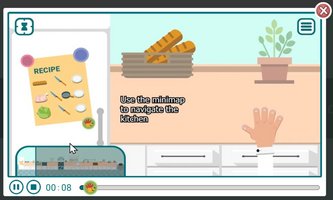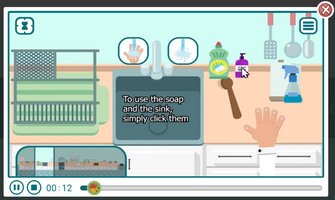SafeConsume
The SafeConsume Game is developed as part of the EU SafeConsume project. Our aim for the game was to enhance consumer knowledge and skills, including increasing awareness of food safety and promoting safer food-related behaviors among consumers. To evaluate the effectiveness of these measures, we conducted a comprehensive study.
Our study involved a total of 1087 participants aged 20–50, as well as an additional 886 participants aged up to 89 from the UK and Norway. These participants were divided into three groups: a control group that completed pre- and post-surveys about food safety beliefs and behaviors with a one-week interval, a group that viewed a brief information video in addition to the surveys, and a group that played an online game in addition to the surveys. Both intervention types led to improvements in food safety beliefs to a similar extent compared to the control group.
However, it was only the game intervention that significantly improved self-reported food safety behavior. This suggests that simply providing information to consumers is often insufficient to change established behaviors. Our study revealed that consistently practicing correct behavior in the virtual environment of the online game had a positive influence on real-world behavior. Importantly, these effects were not limited to young people and were consistent across different age groups. You can learn more about the study here.
In another study, we use a variant of the SafeConsume Game to study spillover effects that reminder nudges have. Evaluation of nudges typically focuses on single behaviors. Yet, most decision-making environments are complex because several decisions have to be taken within a short time span. Our research demonstrates that reminder nudges have negative spillover effects on other actions in a complex environment. Importantly, these spillover effects persist even after the removal of the reminder nudge, while the positive effects on targeted behavior diminish. You can learn more about the study here.
Overall, our results highlight the importance of considering the spillover effects of nudges, both immediately and after the withdrawal of the nudge, when implementing nudges or evaluating the effectiveness of nudges.
Interface of the game


